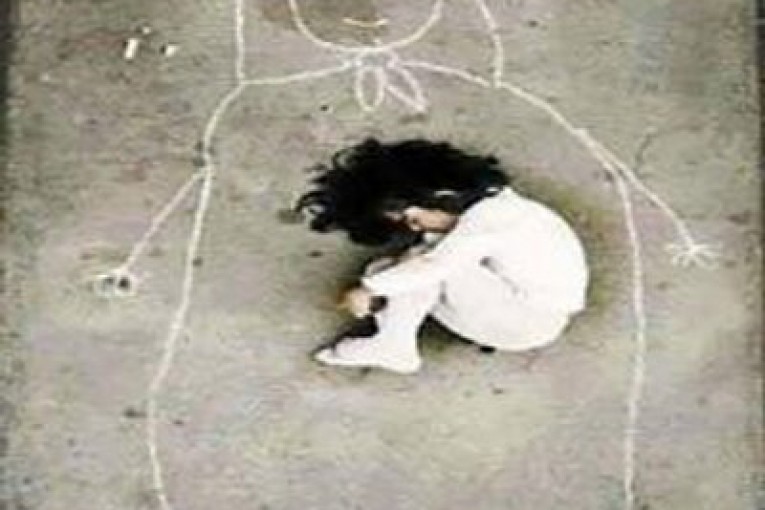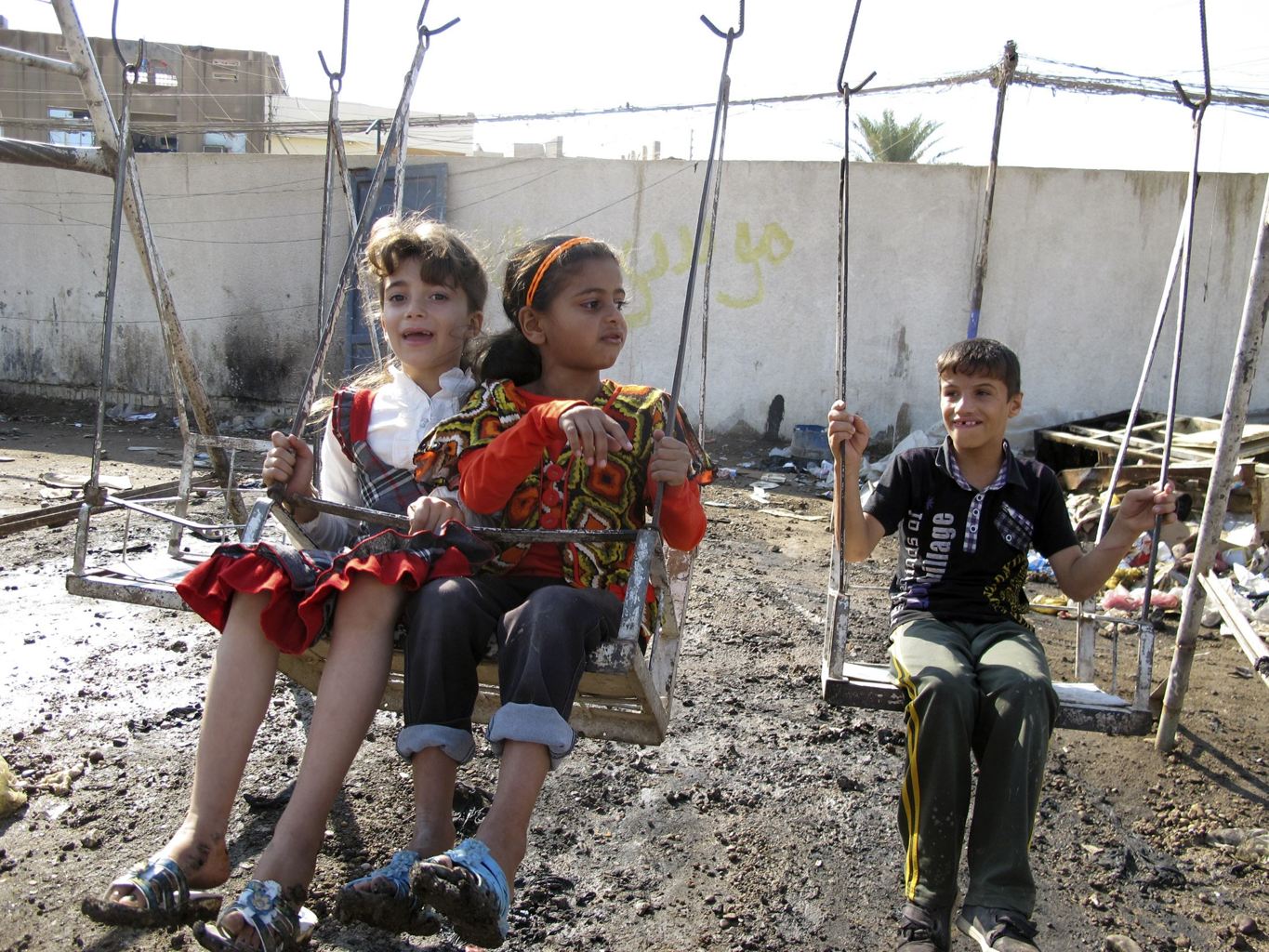
PRIVATE : Global Humanitarian PIVOT for childhood Studies and research
Field investigation
A cry in the dark: Give us hope, Save the Childhood
Global Humanitarian PIVOT: Niger-Jordan-Syria-Lebanon-Iraq, Libya
Since the establishment of the global humanitarian Pivot for the childhood Studies and research, and it decided to work in three languages at once, which are: Arabic, English and French, and Pivot is aware of it’s role and humanitarian duty at the moment, and in the future. also Pivot came to realize It’s message, goals and ambitions .and today it holds a management Council and consulting staff with a universal character, whose members belong to more than twenty countries, including the great countries, middle class and poor one, covering the continents of the world. Those who work for the Pivot are scientists, researchers and academics known for their humanitarian belonging and distinctiveness in their majors and their fields.
In this investigation the global humanitarian Pivot for childhood studies and research, to explore the reality of childhood in six countries, some of them have received large groups of refugees, some of them are weakened by civil and foreign wars..
The global humanitarian Pivot for childhood studies and research will not deal with the results of this investigation, or any other investigations and studies conducted, as it’s described as a press materials that ends it’s importance with being published, but it will send the results to the embassies of the countries concerned, and the relief organization, and international organizations that are able to make a real change, and contribute of the treatment of this painful and bitter reality.
Niger: vaccinations of children: the problem and the solutions
Our adviser in Niger, Dr. Ali Diallo: says “Childhood in my country need a lot of attention, and it’s well” then he speaks about his country, and says: “My country is one of the world’s poorest countries, the least developed among them at all; the desert covers about 80% of it space, while the rest experience climatic problems such as drought. our economy relies heavily on the export of some agricultural products that concentrated their production in the southern part of the country described as the most fertile part “and he adds:” my country is unable to rise itself economically and socially at the present time, because it lacks the appropriate infrastructure, so the country’s health sector is in decline, the level of education is in ebb and decline. ”
Dr. Diallo believes that the rise of childhood is the most appropriate solution for all future problems, and tells us that UNICEF and some relevant childhood organizations are trying to provide solution to the problems of childhood solutions, but they remain temporary solutions, or they are like painkillers that soothe the pain for some time, but they don’t fix it. And he speaks clearly about his country’s need for long-term solutions, so that the health sector get the training to take an institutional form that does not get affected by the lack of support, or the change of people, and also the education’s system in the country in need of similar solutions. and He wonders why they should wait for vaccinations of children, for example, as a grant that may come on time or be delayed, why doesn’t the donor countries create the right climate, and provide materials that will produce vaccines in my country, and then train a national staff to do this job that is not tough?
It is worth noting that some of the vaccines that were given to the children of Niger, and other poor countries were expired, or corrupt due to improper storage, or transportation that is not based on the scientific basis of maintaining a certain temperature for the vaccine, and is not exposed to affects that causes corruption.
The training of a national staff that holds the health and educational aspects in poor countries has become an urgent necessity today, and a global human duty that can not be ignored.
Jordan, Lebanon: asylum, violations and difficulties.
As for Jordan and Lebanon, our advisors talk about two types of asylum; the first one is the Palestinian refuge in the middle of the last century. The conditions of education was available for most children of that generation of refugees, many of whom have become in leadership positions today, and prestigious Social positions. and also the health and education sectors have taken an institutional form that is not affected by the change of people and circumstances. The second one is the Syrian refuge seekers who crawled into these two countries as a result of the events of the so-called Arab Spring. it is still in dire need of international relief. especially in the living issues, relief, health, educational, and psychological aspects.
However, the reality of childhood in these two countries is not a great promise, for example several newspapers had published, as some social networking sites published scary and miserable cases about the mistreatment of some of the parents to their children inside the house because of the economic and psychological pressures and cases of unemployment faced by parents in particular , and perhaps the absence of culture and education for those parents exacerbates this problem.
And some of the childhood problems in Jordan and Lebanon is the use of some children as Lab rats. where, some drug companies test new medicines on number of children to know the side effects of these drugs, and find out their therapeutic level. And note their suitability for human consumption, and thus access to results-profit and returns that may result from it promotion.
As Jordan’s schools have wetness cases of abuse by some students to their teachers, and vice versa. some -entrusted – studies a significant increase in the abuse of alcohol and drugs among a significant number of children, and perhaps the phenomenon of dropping out of school has become one of the most phenomena that bother Jordanian society and the Jordanian government alike.
Libya : an open tragedy
Turning to Libya, our consultants talk about a terrifying and bitter reality of the childhood there. So that there is a complete absence of extracurricular activities for children, and if you find such activities, it would be carried out by extremist religious organizations aimed to train children to violence and exploitation in conflict situations.
In Libya also the role of the school has fallen sharply, cases of school dropout have increased alarmingly, also the education of girls is fallen back, and now many families prevent their daughters from going to school, either out of fear for them from harassment or kidnapping or injury, or to the fact that some parents have strong opinions of the idea of women’s education from the star, which are resulting from a false understanding of the teachings of the Islamic religion, which urges education and demand it.
It has become a common phenomenon to see armed children in Libya, and there participation of the armed conflict with this or that. It is natural that a child who is engaged by armed conflict vulnerable to exploitation of every kind, as it is normal that his relationship with the school has ended.
Our advisors also add that children drug use in Libya have exceeded all lines, and that there are a small number of Libyan children with behavioral disorders shown in the tendency to violence and vandalism, and sometimes the desire to stay alone. And that quite a few of them suffer from phobias, depression, loss of education due to a shift of some schools for military headquarters, or shelters for refugees.
Syria: a conflict over land and mind
Our consultants indicates that Syria has two types of children: one came under the control of armed groups by virtue of its control over his residence area. and that lead these children to the curricula of these organizations in teaching and education, and the other type is refugee in their country, where their family was able to flee to an area which is not controlled by the armed groups, most of these children remained without a school, or any kind of education.
The way to school in Syria is risky, which prevents most parents from sending their children to school, while many girls in many parts of Syrian territory, it has become something familiar to them that they are not allowed to go to school or even considering them or just thinking about it. because their access to school carries a lot of risk; with the exception of some neighborhoods of Damascus, and some neighborhoods for the relative safety in a relatively safe areas, but the bigger picture is that a lot of parents avoid sending their children to schools. because from their point of view the schools is no longer a safe place.
Also in Syria, it suffering from the loss of belonging to the country for the benefit of belonging to religious, ethnic or sectarian or regionalism of the group, which causes the children phobia of everything. For example, the child can not hold the flag of his country or the flag of the revolution, because he does not know who want this flag or who want that, as if the whole country deferred until the end of the conflict and the imposition of the winner flag.
Iraq : the maze of the childhood and the mothers.
In Iraq our consultants talk about other things in details. As the Pivot consultant and the previous governmental employee Mrs. Eman Al-Gader talks about the necessity of determining the reality of the childhood in Iraq in laud and clear.
At that concerned Eman Al-Gader tells us that the child suffering in Iraq begins from the moment of prenatal due to the lack of healthy conditions to give birth in most hospitals or health centers, and Gader also tells us that there is no private or government nurseries for children of working women, and if there is such nurseries then it would be too expensive to fit the income of working women, and the health conditions of the nursery may not suitable for children of working women during the period of the mother’s presence in her work.
One of the most important problems of Iraqi children is crowded classrooms, the number of children in the classroom is way much more than the class room tolerate. So we find in some schools of poor areas that about 70% of children are sitting on the floor.
And our consultant Gader see that the temperature degrees in Iraq is another disaster that the school students suffers from. despite the high temperatures by the virtue of the climatic nature of Iraq, schools do not have in the classrooms any form of refrigeration or air-conditioning, and even traditional fans is available.
And some of the things that were noted by our Pivot team during this investigation weather it was within the school ground in Iraq or outside the school walls, that there are no places to play, as there are no centers or workshops for the development of children’s talents, though it was found in private schools, and wealthy neighborhoods.
The team that conducted this investigation tells us that the school curriculum in Iraq does not fit the child’s level of thinking, this may be the curriculum of higher level thinking or less, which means that their preparation was randomly made, and without proper planning of specialized professionals.
This temperament and individuality has been extended to take the decision that a significant number of educational faculties staff require school girls to wear Al-Hegab out of a personal orientations, and without any formal or governmental decisions. also it was noted by the investigation team that they overwork child with requests to buy school supplies at their own expense, that do not fit with the level of their families income , or with the economic and living conditions of the family level.
Al-Gader also inform us with the increase of the percentage of student skipping schools in Iraq, and the prevalence of working children, and they’re hired out for begging, and for illegitimate ends on top of it comes sexual exploitation, and trafficking with their bodies, and the spread of the phenomenon of marrying off underage girls. especially girls in poorest areas. and that some children delayed late hours of the night makes them vulnerable to sexual abuse and other kinds as well. Some of the children get back to his home late, either because of work or because he was with the bad guys, and some of them do not return to his home from the first place, but he sleeps at his workplace, which doubles the possibility to be used.
According to our advisors the absence of uniforms for most of the schools increases the psychological gap between students and deepens the class levels differences, also it contributes to the drop out of school when the child is no longer likely to see himself in the embarrassing position among his peers.
Some parents in severe conflict zones, and extreme poverty have tried to sell their children, or rent them, or force their under aged daughter to marry much older men than their age. Some of these men are from her father’s generation, some of whom are from the generation of her grandfather, and the overwhelming majority of them deal with child that was married to him as a puppet bought at his own expense, and they throw her when he feel he needs them.
Some of the other tragedies that happens in Iraq is that some children dig garbage per day in order to seek to extract waste unfit for sale, which exposes them to a number of dangers on top of the health risk, or sometimes the risk of exposure to harmful or lethal materials.








